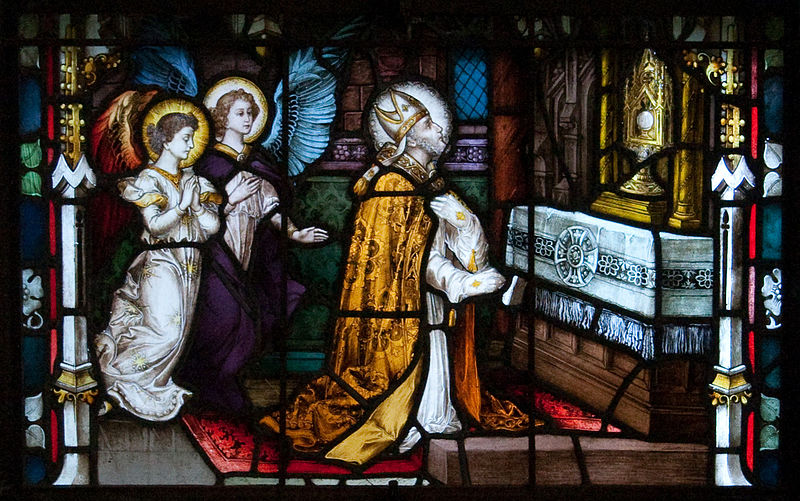 | ||
|
COMMENT
The Night Office Second Reading was an attractive
presentation of Saint Alphonsus C.Ss.R, Congregation
of the Most Holy Redeemer,
SAINT OF THE DAY Leonard Foley, OFM.
Unfortunately, for the first time, we
have encountered detection of malware.
No doubt, Franciscan Media Website will restore the excellent service.
No doubt, Franciscan Media Website will restore the excellent service.
AUGUST 1 Alphonsus Liguori
Bishop and Doctor (1696-1787)
MEMORIAL
Moral theology, Vatican Il said, should be more thoroughly
nourished by Scripture, and show the nobility of the Christian vocation of the faithful
and their obligation to bring forth fruit in charity for the life of the world.
Alphonsus, declared patron of moral theologians by Pius XII in 1950, would rejoice
in that statement. In his day, he fought for the liberation of moral theology from
the rigidity of Jansenism. His moral theology, which went through 60 editions in
the century following him, concentrated on the practical and concrete problems
of pastors and confessors. If a certain legalism and minimalism crept into moral
theology, it should not be attributed to this model of moderation and gentleness.
At the University
of Naples he received, at the age of 16, a doctorate in both canon and civil law
by acclamation, but soon gave up the practice of law for apostolic activity. He
was ordained priest and concentrated his pastoral efforts on popular (parish) missions,
hearing confessions, forming Christian groups.
He founded the Redemptorist
congregation in 1732. It was an association of priests and brothers living a common
life, dedicated to the imitation of Christ, and working mainly in popular missions
for peasants in rural areas. Almost as an omen of what was to come later, he found
himself deserted, after a while, by all his original companions except one lay brother.
But the congregation managed to survive and was formally approved 17 years later,
though its troubles were not over.
Alphonsus' great
pastoral reforms were in the pulpit and confessional-replacing the pompous oratory
of the time with simplicity, and the rigourism of Jansenism with kindness. His
great fame as a writer has somewhat eclipsed the fact that for 26 years he travelled
up and down the kingdom of Naples preaching popular missions.
He was made bishop (after
trying to reject the honour) at 66 and at once instituted a thorough reform of the
diocese.
His greatest sorrow came
at the end of his life. The Redernptorists, precariously continuing after the suppression
of the Jesuits, had difficulty in getting their rule approved by the Kingdom of
Naples. Alphonsus acceded to the condition that they possess no property in common,
but a royal official, with the connivance of a high Redemptorist official, changed
the rule substantially. Alphonsus, old, crippled and with very bad sight, signed
the document, unaware that he had been betrayed. The Redemptorists in the Papal
States then put themselves under the pope, who withdrew those in Naples from the
jurisdiction of Alphonsus. It was only after his death that the branches were united.
At 71 he was afflicted
with rheumatic pains which left incurable bending of his neck; until it was straightened
a little, the pressure of his chin caused a raw wound on his chest. He suffered
a final 18 months of "dark night" scruples, fears, temptations against
every article of faith and every virtue, interspersed with intervals of light and
relief, when ecstasies were frequent.
Alphonsus is best known
for his moral theology, but he also wrote well in the field of spiritual and dogmatic
theology. His Glories of Mary is one of the great works on that subject, and his book Visits to the Blessed Sacrament went through 40 editions in his lifetime, greatly influencing
the practice of this devotion in
the Church.
QUOTE:
Someone once remarked,
after a sermon by Alphonsus, “It is a pleasure to listen to your sermons; you
forget yourself and preach Jesus Christ.”
SAINT OF THE DAY
Leonard Foley, OFM.











